How do rape and incest abortion exceptions work?
The case of a 10-year-old rape victim has brought widespread attention to a legally complicated question

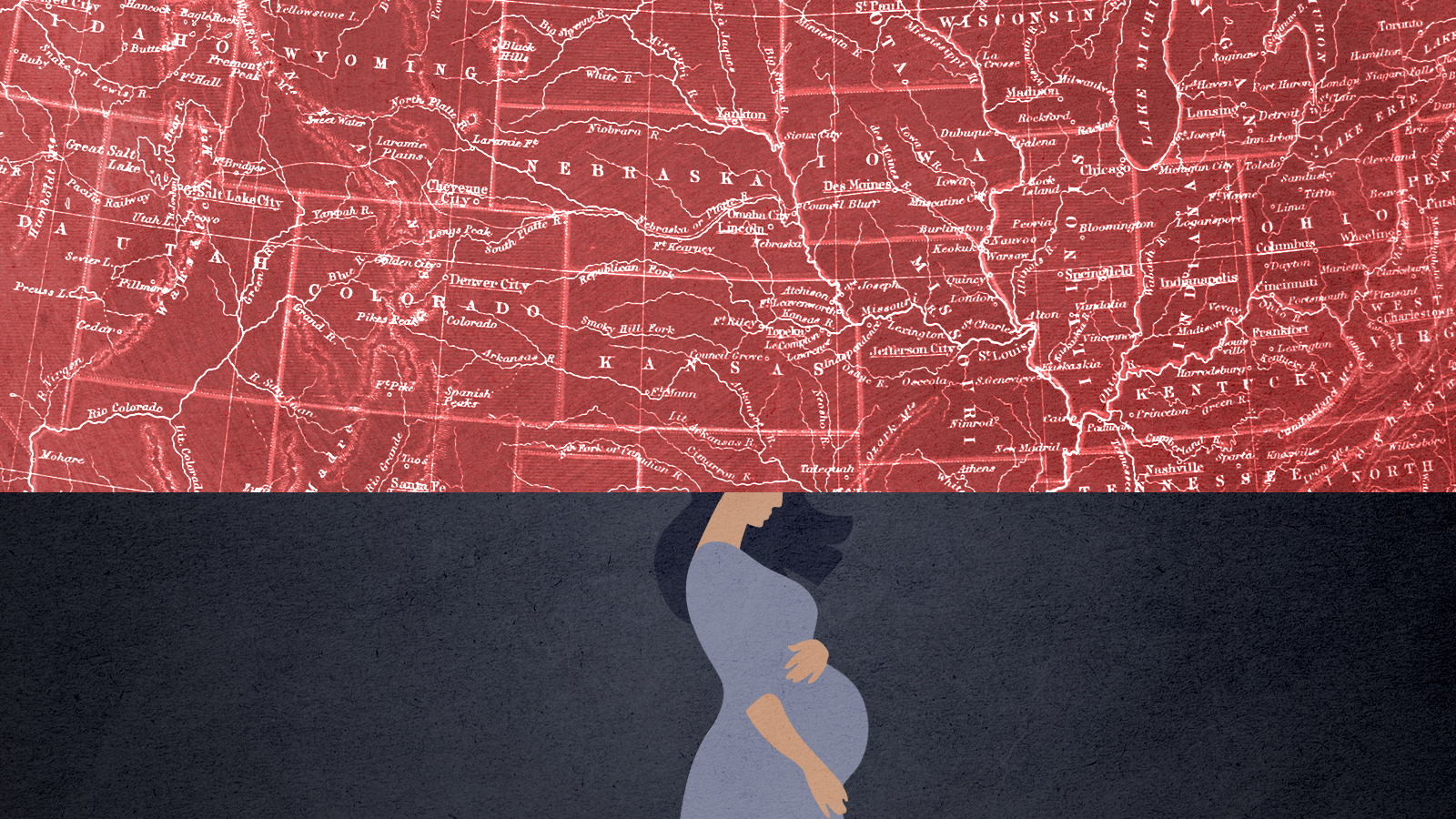
A free daily email with the biggest news stories of the day – and the best features from TheWeek.com
You are now subscribed
Your newsletter sign-up was successful
A 10-year-old Ohio girl has become a flashpoint in the nation's ongoing debate over abortion after she traveled to Indiana on June 30 to terminate a pregnancy that resulted from rape. The girl was barred from obtaining an abortion in her home state because of Ohio's "heartbeat ban," which prevents the procedure after about six weeks unless the mother's life is in danger.
Ohio's abortion law contains no exceptions for rape or incest, despite the fact that in this case, the victim's pregnancy was incontrovertible evidence that a rape had occurred; 10-year-olds cannot legally consent to sex. Typically, though, such cases are far more complicated legally. Here's everything you need to know:
Which states have rape and incest exceptions?
In Oklahoma, Idaho, North Dakota, Wyoming, Utah, South Carolina, Georgia, and Iowa, abortion bans with exceptions for rape and incest are either already in effect or could take effect in the near future, pending the outcome of a court case. In Mississippi, abortion is banned with an exception for rape, but not incest.
The Week
Escape your echo chamber. Get the facts behind the news, plus analysis from multiple perspectives.

Sign up for The Week's Free Newsletters
From our morning news briefing to a weekly Good News Newsletter, get the best of The Week delivered directly to your inbox.
From our morning news briefing to a weekly Good News Newsletter, get the best of The Week delivered directly to your inbox.
In Alabama, Arkansas, Missouri, South Dakota, Texas, Wisconsin, West Virginia, Tennessee, Arizona, Louisiana, Florida, and Ohio, abortion is (or will soon be) either banned or limited to a narrow gestational window with no exceptions for rape or incest. Some of these laws have been blocked by judges or are being challenged in court.
In Indiana, abortion remains legal through 22 weeks, but Gov. Eric Holcomb (R) plans to call a special legislative session later this month to tighten abortion restrictions.
How do rape and incest exceptions work?
Requiring an abortion seeker to legally prove rape or incest is an absurd demand. Data from the Rape, Abuse, and Incest National Network show that around 60 percent of rapes and sexual assaults are not reported to the police. Only 24 percent of reported rapes — 9 percent of all rapes — end in a criminal conviction. It's also entirely possible that the investigation and legal proceedings could take longer than nine months. In cases of incest, it's even worse: A paper published in the FBI Law Enforcement Bulletin cited estimates that only 20 percent of incest offenses are reported to law enforcement.
It is also not always possible to medically prove rape. As Sian Ferguson wrote for Everyday Feminism, rapists often "subdue the victim or survivor by making verbal threats, intoxicating them, or waiting until they're unconscious," none of which cause obvious physical injury. Rape kits also cannot distinguish between rape and rough consensual sex, nor can they determine whether one partner withdrew consent during a sexual encounter that began consensually. Medically proving incest would be less challenging, since paternity tests can be performed in utero as early as nine weeks.
A free daily email with the biggest news stories of the day – and the best features from TheWeek.com
The most widespread rape and incest exception currently in effect is the Hyde Amendment, which bars federal funding for most abortions but requires Medicaid funds to go toward the procedure in cases of rape, incest, or danger to the mother's life.
A Washington Post report from 2012 found that 20 states plus the District of Columbia required only a doctor's note to prove rape for Medicaid purposes, while 11 required victims to file "a police report or social services agency report." According to the Post, doctors and patients found the Medicaid paperwork burdensome. Less than half of abortions performed on Medicaid beneficiaries who had become pregnant as a result of rape or incest or whose pregnancies endangered their lives were reimbursed through the program. Some got the procedure funded through a nonprofit, while around a quarter of abortion-seeking Medicaid recipients ended up giving birth instead. In 2009, the federal government funded only 331 abortions.
State abortion bans also vary widely in their requirements for accessing legal abortion in exceptional cases. Wyoming's trigger ban, for example, includes rape and incest exceptions but does not specify any procedure for proving rape or incest. Giovanna Anthony, an abortion provider at Wyoming's only abortion clinic, told Politico that she has read the law and consulted with a lawyer but still isn't sure what the new rules are. She said she can't imagine telling a pregnant rape victim "you're on your own," but that she also doesn't "want to go to jail."
Other states are more straightforward. Oklahoma's law stipulates that "a person shall not knowingly perform or attempt to perform an abortion unless: 1. The abortion is necessary to save the life of a pregnant woman in a medical emergency; or 2. The pregnancy is the result of rape, sexual assault, or incest that has been reported to law enforcement."
According to Politico, abortion clinics and funds in Idaho, Mississippi, North Dakota, and Wyoming — all of which have rape and/or incest exceptions — have indicated that "it will likely be easier to get patients across state lines for an abortion than try to clear the hurdles associated with obtaining one legally in their home state."
Could women lie about rape to obtain abortions?
They could, but it's unlikely to become common. Most women are more likely to choose to obtain an abortion legally in another state, rather than risk going to jail for filing a false police report.
Famously, Norma McCorvey — the plaintiff dubbed "Jane Roe" in the landmark Roe v. Wade (1973) decision — admitted in 1987 to "falsely claim[ing] to have been raped in hopes of winning an exemption from Texas law banning the operation," The Washington Post reports. Despite occasionally resurfaced claims that "the 1973 decision was only made because the plaintiff had falsely claimed she had been raped," Reuters quotes Caroline Mala Corbin, a professor at the University of Miami School of Law, who points out that "how [McCorvey] became pregnant was irrelevant to the question before the Court of whether she had a constitutional right to end that pregnancy."
In Brazil — where abortion is illegal except in cases of rape, fetal anencephaly, or danger to the mother's life — there have also been notable cases of false police reports. However, most abortion-seeking women in the country choose to obtain the procedure illegally rather than claiming to have been raped. Popular options include black-market abortion pills, folk remedies, and underground clinics. More than 200,000 Brazilian women are hospitalized each year due to complications from abortion.
Grayson Quay was the weekend editor at TheWeek.com. His writing has also been published in National Review, the Pittsburgh Post-Gazette, Modern Age, The American Conservative, The Spectator World, and other outlets. Grayson earned his M.A. from Georgetown University in 2019.
-
 6 of the world’s most accessible destinations
6 of the world’s most accessible destinationsThe Week Recommends Experience all of Berlin, Singapore and Sydney
-
 How the FCC’s ‘equal time’ rule works
How the FCC’s ‘equal time’ rule worksIn the Spotlight The law is at the heart of the Colbert-CBS conflict
-
 What is the endgame in the DHS shutdown?
What is the endgame in the DHS shutdown?Today’s Big Question Democrats want to rein in ICE’s immigration crackdown
-
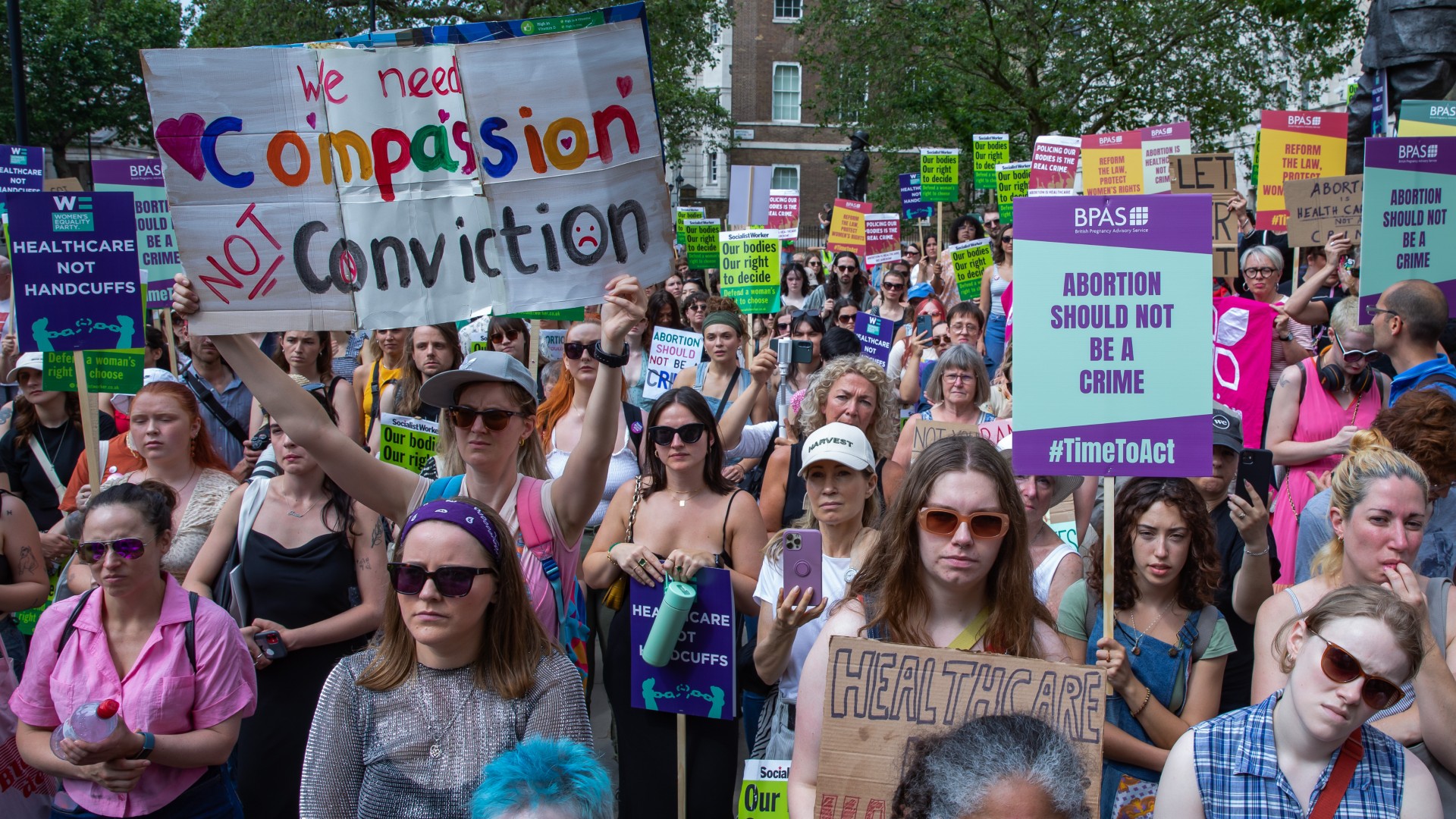 Is the UK about to decriminalise abortion?
Is the UK about to decriminalise abortion?Talking Point A rise in prosecutions has led Labour MPs to challenge the UK's abortion laws
-
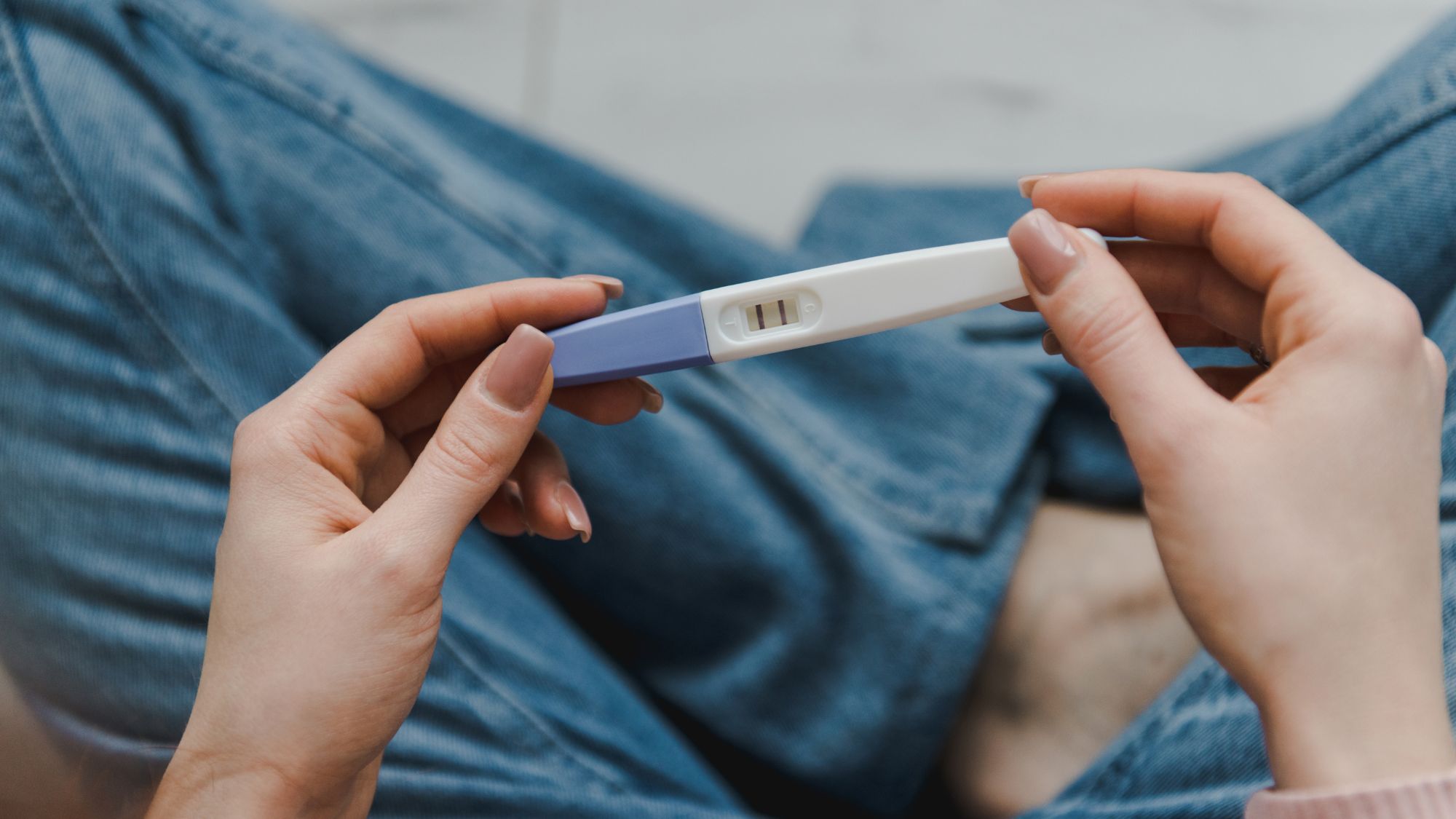 Abortions rise to record level 'due to cost of living'
Abortions rise to record level 'due to cost of living'Speed Read Low-income women face 'heart-breaking' choice, warns abortion charity chief
-
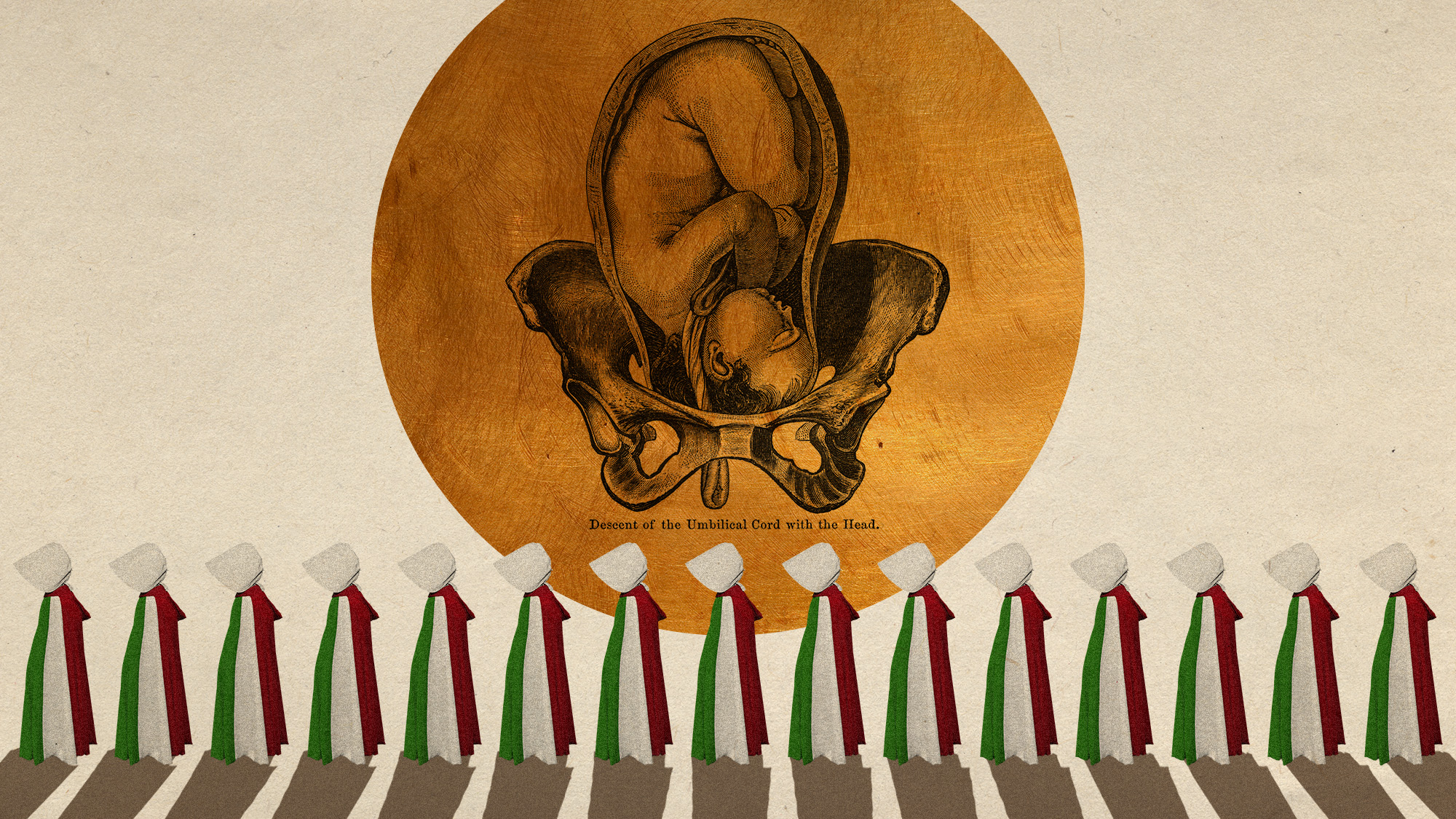 Italian senate passes law allowing anti-abortion activists into clinics
Italian senate passes law allowing anti-abortion activists into clinicsUnder The Radar Giorgia Meloni scores a political 'victory' but will it make much difference in practice?
-
 France enshrines abortion rights in constitution
France enshrines abortion rights in constitutionspeed read It became the first country to make abortion a constitutional right
-
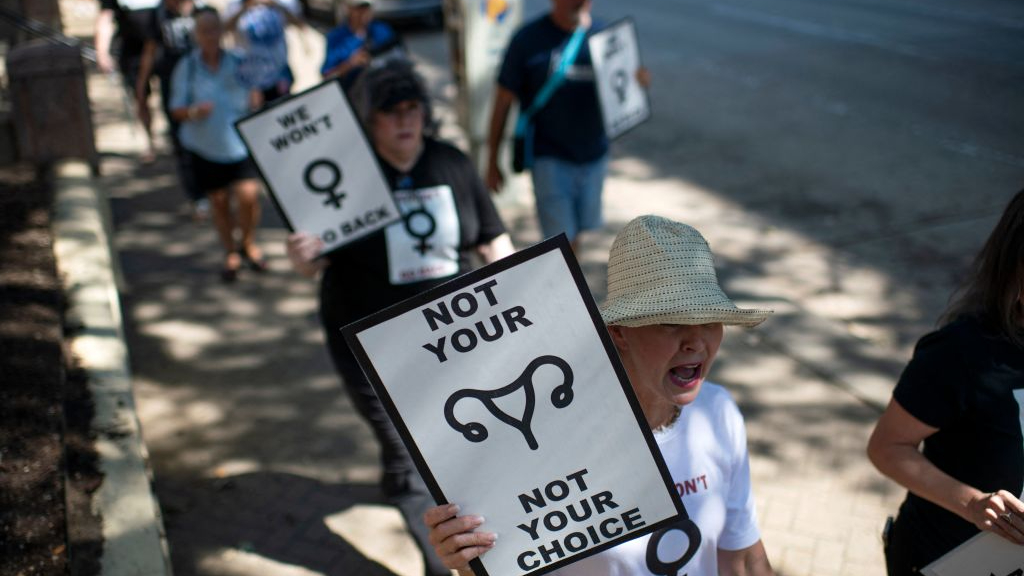 Texas judge approves abortion of nonviable fetus, drawing threat from Texas attorney general
Texas judge approves abortion of nonviable fetus, drawing threat from Texas attorney generalSpeed Read Kate Cox petitioned to terminate her doomed pregnancy, salvaging her uterus and the option to try for more children
-
 Ohio voters defeat GOP measure to raise referendum threshold
Ohio voters defeat GOP measure to raise referendum thresholdSpeed Read
-
 Ohio is voting on whether to raise the bar on referendums — and a popular abortion amendment
Ohio is voting on whether to raise the bar on referendums — and a popular abortion amendmentSpeed Read
-
 Abortion law reform: a question of safety?
Abortion law reform: a question of safety?Talking Point Jailing of woman who took abortion pills after legal limit leads to calls to scrap ‘archaic’ 1861 legislation
